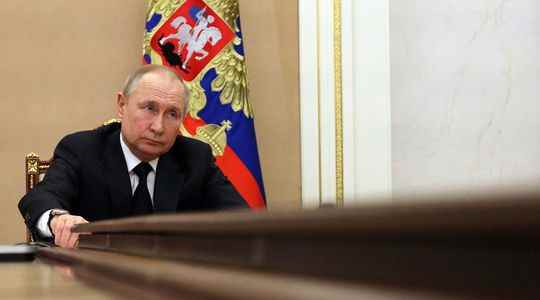A spectacle of desolation and death was revealed to the eyes of Ukrainian soldiers and journalists on the spot in the liberated towns. Russian troops withdrew from Irpin, Boutcha, Gostomel and the entire kyiv region on Saturday April 2, as well as from Chernihiv, in the north of the country, to redeploy towards the East and the South, leaving behind gutted territories and numerous suspicions of war crimes committed in the country since the start of the offensive on February 24. Spain, Poland and Ukrainian President Volodymyr Zelensky have even mentioned a possible “genocide”.
Among these battered towns, Boutcha, a small town northwest of kyiv, was probably the scene of abuses committed against civilians. Many corpses were visible in the streets while mass graves were discovered. Faced with this horror, UN Secretary General Antonio Guterres, said he was “deeply shocked”, called for “an independent investigation”. The NGO Human Rights Watch also denounced on Sunday abuses by Russian soldiers against civilians amounting to “war crimes” in the regions of Chernihiv, Kharkiv and kyiv, saying it had identified several cases of “violations of the laws of war”. (rape, summary executions, violence, threats, looting).
Like London or Madrid, Paris has called for an investigation into these abuses. “We will work, in conjunction with our partners, the Ukrainian authorities and the competent international courts, in particular the International Criminal Court, so that these acts do not go unpunished and that those responsible are tried and sentenced,” Emmanuel Macron said on Sunday. According to Volodymyr Zelensky, a “special mechanism” will be created to investigate all Russian “crimes” in Ukraine. But what does Vladimir Putin actually risk in the face of these accusations? According to Emmanuel Daoud, a criminal lawyer interviewed by L’Express, the Russian president could this time pay for his crimes and risk life.
L’Express: After the abuses observed in the kyiv region, and in particular in the city of Boutcha, can Vladimir Putin be described as a war criminal?
Emmanuel Daoud: The Russian president commands an army that commits war crimes, which are characterized in particular by the bombing of schools, hospitals, maternity wards… The work of the International Criminal Court (ICC), established in The Hague, is then to go up the chain of command and identify the various people responsible, but Vladimir Putin was already a war criminal before the Ukrainian conflict. Let us remember that he razed Groznyi in Chechnya in 1999, then bombed Aleppo in Syria in 2016.
To me, he is possibly the greatest war criminal of our time. Moreover, the evidence of abuses by the Russian army is accumulating. Vladimir Putin is not a democrat. He is a head of state who, to achieve his objectives such as putting down the Chechen rebellion or annihilating the Syrian rebels, is ready to use all methods.
How to prove the crimes committed in such a delicate context, particularly from the point of view of disinformation?
We have to be careful with propaganda, but this is the first time in the history of international criminal law that crimes have been documented in real time. On the spot, there are magistrates, mandated lawyers, who, in real time, consolidate this evidence. Moreover, there are digital specialists who are able to identify if images are real and not modified, manipulated. This lends credibility to the evidence.
When the soldiers entered Boutcha, leading reporters accompanied them and said that the corpses found were still surrounded by a pool of blood, which means that they were not moved. Moreover, according to these journalists, the Ukrainian soldiers looked surprised and moved, so it can be considered that this massacre was not the subject of a trick on the part of kyiv.
What does Vladimir Putin actually risk today?
The situation is different in Ukraine compared to Syria or Chechnya where the ICC has no jurisdiction, while it can act in Ukraine. In 2014, kyiv recognized the jurisdiction of the International Criminal Court over the acts committed on its territory. And then, the light brought to the conflict in Ukraine is disproportionate to the empathy that the Chechen or Syrian situations could provoke.
In the case of Ukraine, the ICC was seized, an investigation was opened at the beginning of March and is underway in collaboration with the Ukrainian authorities to gather daily probative evidence. Arrest warrants could thus be issued fairly quickly with regard to the time of international justice, namely between two and five years. It is then up to the States which have ratified the Rome Statute to hand over to The Hague the persons struck by this arrest warrant. Russia is not a member of the treaty so it has no obligation to hand over Vladimir Putin, who will not be tried if he stays in Russia. On the other hand, he could be apprehended if he moves outside his borders, knowing that the war crime is imprescriptible.
Moreover, he could also be handed over by Russia if he were to lose power, as we saw with the case of the former Serbian head of state Slobodan Milosevic. If he were arrested and tried, Vladimir Putin would then risk life imprisonment, but other officials could also be worried, starting with senior officers, generals, then the chiefs of staff of the various armies; and finally those who supported these crimes like the Russian Defense Minister. We will thus go up the chain of command to identify those who had operational responsibilities in the field.
